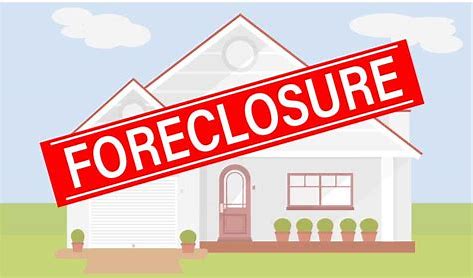Understanding The Foreclosure Process In Virginia And Maryland

WHAT IS FORECLOSURE?
Foreclosure is the legal process in which lenders take back a property that is securing a loan. Foreclosure happens if the borrower has not made a mortgage payment in approximately 3 to 6 months. The foreclosure process is slightly different in every state, but there are two main types of foreclosure: judicial and power of sale.
JUDICIAL FORECLOSURE
- Lender files a suit in the court system
- The court will send a letter demanding payment
- You have 30 days to bring payment to court to avoid foreclosure (extensions are sometimes possible)
- If you cannot pay, the lender can request the sale of your property by auction and you will be evicted.
- Any contractors or banks with liens against the property can collect from the proceeds of the auction
NONJUDICIAL FORECLOSURE (POWER OF SALE)
- Lender serves you with papers demanding payment
- There is a waiting period during which you can submit payment
- If you do not pay, your property will be transferred to a trustee
- The trustee can sell your property to the lender at public auction
- Any contractors or banks with liens against the property can collect from the proceeds of the auction
FORECLOSURE IN VA
Virginia is a “title theory” state, meaning that the property title remains in trust until the loan is made in full. In most cases, Virginia residential foreclosures are nonjudicial. This means that the lender doesn’t have to go through state courts to foreclose. However, there are also cases of judicial foreclosures. Most of the time, after foreclosure, there will be an auction and the property will be sold. Post-foreclosure redemption periods are rare, but they are possible, and deficiency judgments are permitted. The whole foreclosure process takes about 2-3 months.
FORECLOSURE IN MD
Maryland is a “lien theory” state, meaning that a property acts as security for the underlying loan. In most cases, Maryland residential foreclosures are judicial. This means that a state court issues the final judgement of foreclosure, after which the property will be sold with public notice. Court determined post-foreclosure redemption periods may be allowed, and deficiency judgments are permitted. The whole process takes about 2-3 months.
HOW TO AVOID A FORECLOSURE AUCTION
In some cases, you can avoid getting foreclosed and evicted. It is always worth a try. You can call your bank and attempt to negotiate, or you can work with a reputable real estate company like 8 Day Home Sale to sell your property for its cash value before the foreclosure process begins. If you’ve received notice of foreclosure, there is no time to waste. Get in contact with us today Maryland and Virginia residents for a no-obligation, no-pressure, fair cash offer on your home.

